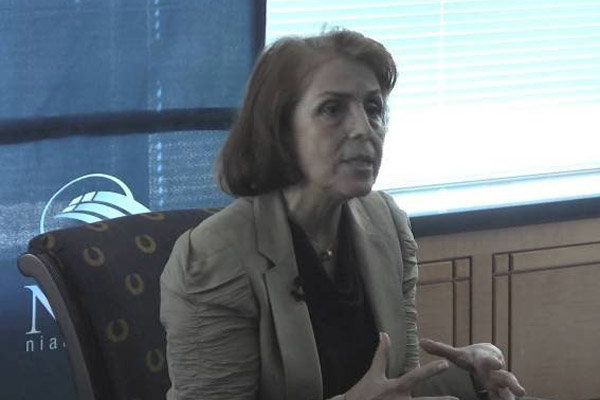I don’t believe Trump will scuttle JCPOA: Georgetown professor

TEHRAN – Georgetown University Professor Shireen Tahmaasb Hunter says she does not believe Donald Trump is seeking to abrogate the nuclear deal signed between Iran, great powers, and the European Union.
“I don’t believe that Trump will scuttle the JCPOA,” Hunter tells the Tehran Times.
She also says Trump’s overtures toward Taiwan are more of “psychological maneuvering” rather a change of policy toward China.
Following is the text the interview:
Q: Trump first declared he would tear up the JCPOA, then said he would renegotiate the terms of the deal. So what is his policy?
A: I don’t believe that Trump will scuttle the JCPOA. However, it is very likely that he will adopt a more confrontational approach towards Iran. Trump’s main concern is to maximize America’s interests, either economically or strategically. If he comes to the conclusion that dealing with Iran is in America’s interests, he will do so. However, he is very sensitive and will react harshly to any provocative statement or action on Iran’s part. In short, the fate of U.S.-Iran relations is in Iran’s hands.
Q: What will be the quality of China-U.S. relationship under the new U.S. administration as Trump has challenged one-China policy by talking to the Taiwanese president.
A: By talking to the President of Taiwan, Trump wants to send a message to China that it cannot take America for granted. If China behaves in ways contrary to U.S. interests, America will retaliate. The one China Policy that America accepted was in the context of U.S.-China reconciliation of the 1970s. Now China challenges America in the Pacific region and basically is flooding American markets. Therefore Trump is saying that the U.S. has means of responding to China’s activities. This is more of psychological maneuvering than actually changes of policy.
Q: Do not you think the U.S.-NATO relations would go through difficulty during the Trump presidency?
A: What Trump has said about NATO members paying a larger share of the Alliance’s budget and defense spending is nothing new. In the past, this was referred to as “Burden-Sharing”. This is a legitimate demand, especially that the United States provides the most important components of the Trans-Atlantic defense, including the nuclear shield. It also provides the Alliance’s air and sea lifting capabilities. These are very important in case of a potential conflict on the continent. These responsibilities impose huge financial burdens on America. Now that Europe, unlike in the 1950s 0r 60s, is financially strong, it should carry a greater share of providing for the continent’s defense.
Of course, Europeans would prefer that America continue paying for Europe’s defense. The problem with Trump is that he frames his views wrongly. For example, saying that NATO is obsolete increases Europeans’ anxieties. However, although initially, relation among NATO partners may experience a difficult period, America and Europe need one another and NATO will survive although some changes and reforms may be carried out. The same applies to the EU. EU’s problems are its own. America cannot either preserve the EU or dismantle it. But Trump should not had said what he did.
Q: Trump has vowed to repeal the Trans Pacific Partnership and this has discomforted countries like Japan and South Korea. So what do you think will happen to the treaty?
A: Free trade agreements largely have benefitted other countries rather than America. This includes Japan, South Korea and China. Consequently, many in America believe that the country should not enter into new ones, such as TPP, AND IF POSSIBLE RENEGOTIATE existing one such as NAFTA. China’s trade practices are quite unfair. It pays its workers very little, practices dumping and disregards environmental regulations which generally increase the cost of production in other countries, especially America.
JH/PA
